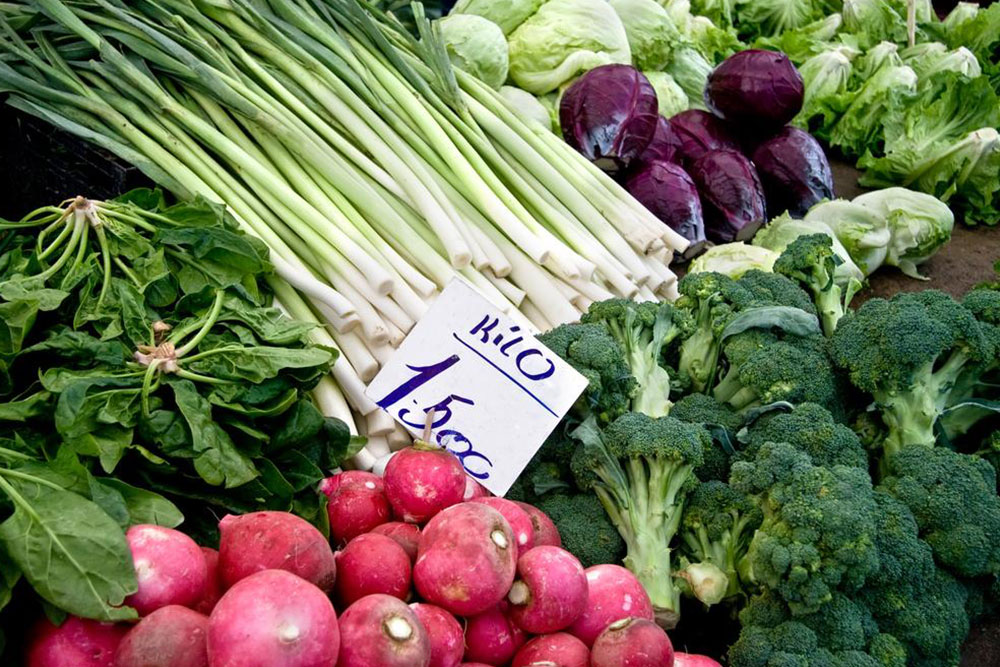Effective Nutritional Strategies to Reduce Excess Mucus Production and Improve Respiratory Health
Discover comprehensive nutritional strategies to naturally reduce excess mucus production, alleviate respiratory discomfort, and support immune health. Learn about the benefits of ginger, chicken broth, onions, herbal teas, and spicy foods in managing mucus buildup effectively through diet and lifestyle adjustments.

Foods That Help Decrease Excessive Mucus and Support Respiratory Wellness
Manufacturing mucus is a common physiological response to battling infections like colds or flu, serving as the body's frontline defense mechanism against irritants and pathogens. However, when mucus production becomes excessive or persistent—often triggered by bacterial infections, allergies, or lung conditions—it can lead to bothersome symptoms such as nasal congestion, sore throats, coughing, and breathing difficulties. Managing mucus levels through targeted dietary choices can significantly alleviate these discomforts and promote recovery. This comprehensive guide explores various foods and habits that can help naturally control mucus production while supporting overall respiratory health.
Ginger is renowned for its potent anti-inflammatory and immune-boosting properties. Its bioactive compounds, such as gingerol, can help soothe inflamed lung tissues and reduce swelling that accompanies respiratory infections. Incorporate fresh ginger into your daily diet by adding slices to teas, broths, soups, or smoothies. Consuming ginger regularly can help diminish mucus buildup, easing coughs and congestion, and supporting your body's efforts to fight off infections effectively. Ginger's natural properties also assist in soothing sore throats and improving overall respiratory comfort.
Chicken Broth has long been a staple remedy for respiratory issues. Homemade chicken broth, prepared with fresh, organic ingredients, acts as a natural expectorant, helping to thin thick mucus and facilitate its removal from the respiratory passages. The warm liquid soothes inflamed mucous membranes, providing immediate relief from congestion and sore throats. To maximize benefits, avoid canned or processed broths which often contain artificial additives and preservatives. Cooking a nourishing chicken soup at home with herbs and vegetables offers a wholesome approach to supporting your immune system and alleviating mucus-related symptoms.
Onions possess natural anti-inflammatory, antibacterial, and antiviral properties, making them highly effective in promoting mucus clearance. Rich in quercetin and sulfur compounds, onions can help reduce inflammation within the respiratory tract and assist in breaking down excess mucus. Use fresh onions liberally in your meals—either raw in salads and salsas or cooked in stews, casseroles, and stir-fries. For enhanced relief, prepare an onion tonic by combining sliced onions with a touch of honey or sugar for a soothing syrup. Additionally, inhaling steam infused with onion slices can provide direct relief from nasal congestion and mucus buildup.
Herbal Teas play a vital role in maintaining respiratory tranquility. Consuming warm herbal teas flavored with ingredients like ginger, lemon, honey, clove, peppermint, or chamomile can relax lung muscles, reduce coughing, and diminish mucus viscosity. Honey acts as a natural antimicrobial and soothing agent, while lemon boosts immunity through vitamin C. Drinking these teas regularly during illness or allergy seasons can ease irritation, soothe inflamed tissues, and promote mucus drainage, ultimately helping to prevent persistent congestion.
Spicy Foods containing chili peppers, cayenne, or spicy sauces stimulate mucous membrane activity, which accelerates mucus breakdown and facilitates easier clearance. Capsaicin, the compound responsible for spiciness, can temporarily open nasal passages and reduce congestion. Incorporate mild to moderate amounts of spicy ingredients into your dishes—such as curries, stir-fries, and soups—to enjoy their mucolytic benefits. Remember to start with small quantities to avoid irritation and gastrointestinal discomfort. Moderation is key to harnessing the mucus-dissolving effects without exacerbating symptoms.
For optimal results, focus on preparing home-cooked meals with fresh greens, seasonal vegetables, and a variety of fruits to bolster your immune system. Adequate hydration—through water, herbal teas, and broths—is essential in thinning mucus and promoting its expulsion. Prioritize rest and avoid foods known to increase mucus production—such as dairy products, processed foods, fried or greasy items, refined sugars, bananas, oranges, alcohol, and red meats. These dietary adjustments, combined with proper hydration and rest, can significantly reduce mucus accumulation, shorten illness duration, and enhance your overall respiratory health. By adopting these nutritional strategies, you can effectively manage mucus levels naturally fostering quicker recovery and better breathing comfort.





